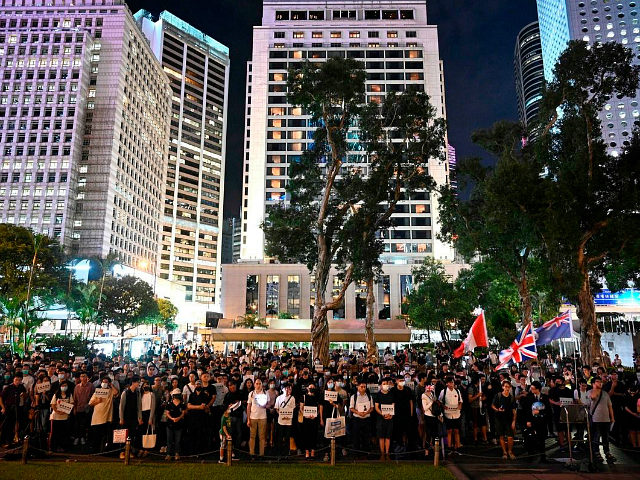Reports: Mainland Chinese Joining Pro-Democracy Hong Kong Protesters

3:34
China’s worst nightmare may be happening: Mainland Chinese citizens are now participating in pro-democracy protests in Hong Kong, according to recent reports.
Wall Street Journal reported Wednesday that a “small cohort of mainlanders have joined the demonstrations, taking extraordinary risks to support a society that offers freedoms unavailable back home.”
“My understanding is that ‘one country, two systems’ is a creative set of ideals,” a 24-year-old Chinese graduate student living in Hong Kong with the last name Chen told the paper. “Now those ideals are threatened.”
The mainlanders said they value Hong Kong’s autonomy from Chinese control and have joined marches, signed open letters supporting Hong Kong, and defended the movement on social media.
Their participation is an indication that the movement could spread to mainland China, despite attempts by the government to brand the Hong Kong protesters as traitors.
Chinese authorities are reportedly checking travelers’ smartphones as they reenter China for evidence of participation in the demonstrations.
Another mainland Chinese citizen who took part in the protests has fled to Taiwan where he is hoping to stay, according to a report by Radio Free Asia.
Zhang Wen, 47, who is sleeping on the streets in Taipei after he abandoned a tour group he arrived with, told the outlet, “I definitely don’t want to go back to mainland China now … So I have two options: I can either apply to extend my visa here, or I can apply for political asylum.”
Zhang said he crossed into Hong Kong several times in June and July to take part in the protests. He reportedly has video of himself storming the Hong Kong Legislative Council building.
“The risk that I will be caught for my support for the anti-extradition protests is very high,” he told Radio Free Asia. “I will definitely get arrested for the storming of LegCo, because some people have been detained just for posting that they support the anti-extradition movement online.”
The protesters have been protesting the encroachment of Beijing on their freedoms following the United Kingdom’s handover of Hong Kong to China in 1997.
China and the United Kingdom signed a treaty in 1984 that agreed to a 50-year time period after the handover wherein Hong Kong would enjoy some political and social autonomy under a “one country, two systems” policy, ending in 2049.
However, since then, pro-democracy protesters in Hong Kong say they have faced an erosion of that autonomy by Beijing. In 2014, Hong Kong residents were forced to choose their next chief executive from a list of candidates vetted by Beijing, which sparked protests known as the Umbrella Movement.
The recent protests were sparked by a proposed bill that would allow those charged with crimes in Hong Kong to be extradited to the mainland where they could face harsher punishment under an opaque justice system.
The bill was tabled, but Hong Kong Chief Executive Carrie Lam has refused to withdraw it altogether, fueling continued protests throughout the summer that risk a violent crackdown by Chinese troops reminiscent of the brutal 1989 crackdown in Tiananmen Square.
Still, most mainlanders in Hong Kong share the Chinese government’s antipathy against the protesters, and some have even fought against the protesters, as the WSJ also reported.
The Chinese government have portrayed the protesters as violent extremists and have accused the U.S. of being behind the protests. Some protesters have carried the American flag as a symbol of freedom.

No comments:
Post a Comment